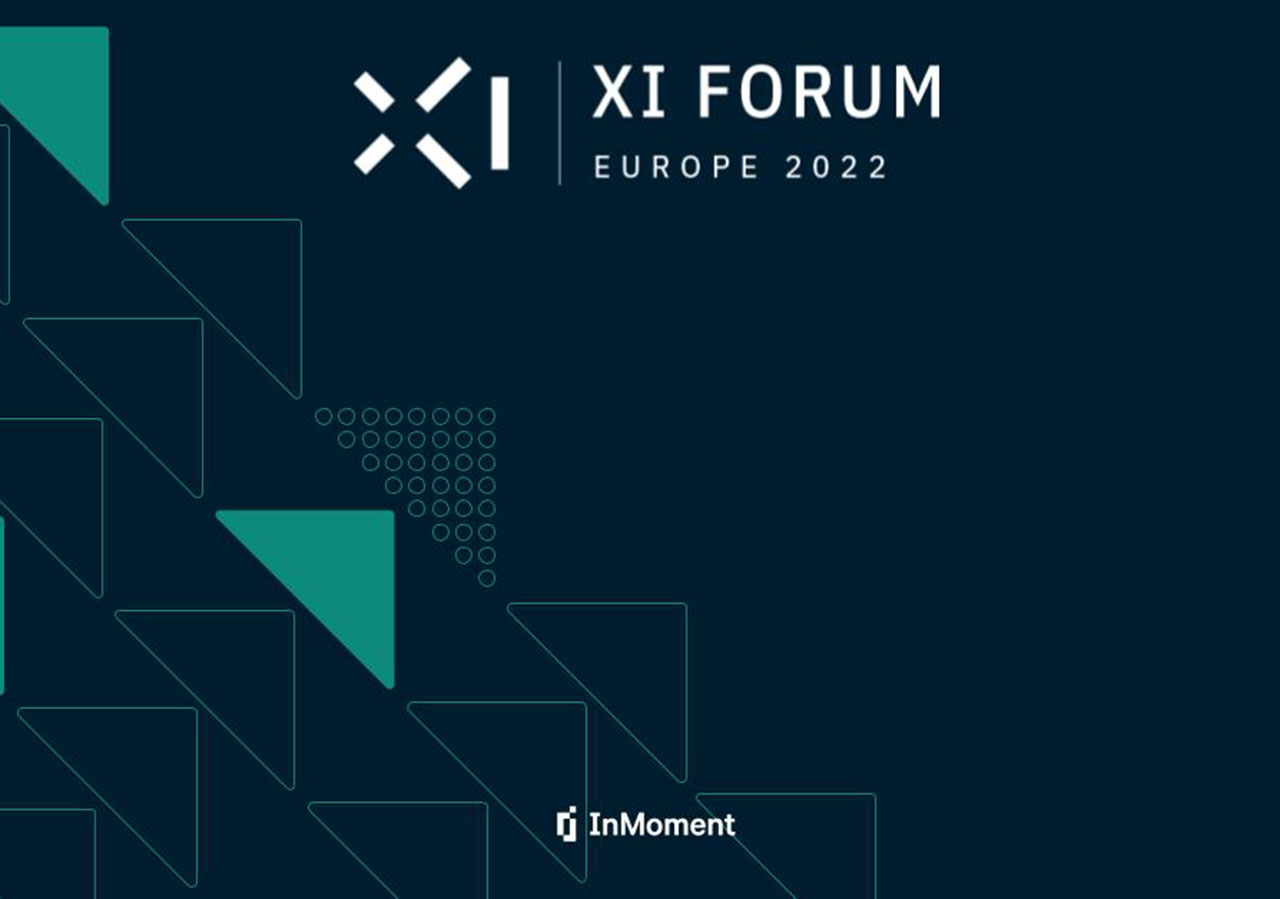5 Things We Learned from EMEA Customer Experience Experts at XI Forum Europe

After nine EMEA customer experience experts, 200+ delegates, eight workshops, and hours of fun and networking at the colourful evening reception, it’s safe to say the XI Forum Europe was a success!
We heard from award-winning CX speakers from some of Europe’s biggest brands—TRUMPF, ASOS, Brakes, Primark, Solus, BD Medical, NatWest and Euro Car Parts, as well as thought-provoking keynotes from InMoment Global Leader, CMO Kristi Knight, and Stan Swinford, CEO and Founder of NPSx by Bain & Company. Hosted over two days, attendees learned practical tips and best practices they can implement immediately into their experience programmes to elevate their experience programmes.
If you missed out on the event, don’t worry—here are five key takeaways you can use to apply to your experience programme today!
5 Pieces of Advice from Our EMEA Customer Experience Experts
#1: Managing Experiences Is Not Enough—The Future Is Experience Improvement
Customer experience started out in the golden age of advertising, market research, and understanding consumers. Then, the internet was born, and online surveys were created to collect customer feedback in a timely manner. Next, we started managing experiences, and we recognised that the total experience a customer has is a collection of moments and interactions along their journey.
The idea of simply “managing” metrics tells your business where you are and where you’ve been, not necessarily where you’re going. The future of customer experience is moving past managing experiences, to actually improving them through Experience Improvement (XI).
#2: Create a Culture of Customer-Centricity by Adopting a Customer-First Mindset
EMEA customer experience experts from Brakes, Solus, BD Medical, and NatWest all noted the importance of building an internal culture within your company to educate your employees on the importance of putting the customer first. Providing colleagues with valuable insight and giving them recognition leads to better employee experience and engagement, which in turn leads to a greater customer experience. Frontline employees need strategic communication.
Changing cultures and mindsets to be more people focused can be tricky in certain industries, however, it’s important to keep everyone in the business updated on your CX efforts so they can truly see the difference you are making in the wider business. Through a customer-first mindset, cross-functional collaboration and silos can be broken down. Customer experience doesn’t belong to one team, it’s an organisational initiative that needs an aligned vision.
#3: Actions Speak Louder Than Words—Data Means Nothing Without Outcomes
The importance of closing the loop with customers and gaining actionable feedback was mentioned in nearly every presentation we heard! Put simply, “closing the loop” means following up with each dissatisfied customer to try and mitigate their negative experience.
A closed feedback loop is not only important to the business, but also your customers; to the customer, not only are you letting them know you are listening, but you are also building a better relationship with them. For the business, you are resolving real-time issues by taking immediate action and creating positive change.
#4: Understand and Predict Your Customers’ Behaviour by Utilising the Right Data, in the Right Way
Primark, Euro Car Parts, and TRUMPF touched on the subject of knowing your customer beyond just a score. In an omnichannel world, this can become increasingly difficult. However, by pulling in data from everywhere—such as social reviews, survey feedback, or demographical data—into one place, you are able to gain a clear picture of who your customer really is and how they feel about their experience with your brand.
And with this clear picture comes actionability—you will clearly understand which stages of the journey need improvement. Journey mapping allows you to identify all the behaviours and feelings throughout the entire customer journey. Not only does this allow you to identify areas for improvement, but also understand what’s working well to make experiences become more seamless and consistent in every touchpoint.
#5: Enrich the Lives of Your Customers—Great CX Doesn’t Need to be Complicated
In the last keynote of the day, EMEA customer experience expert Stan Swinton of Bain & Company left us with insightful advice. He noted that in today’s world, the best companies are creating shareholder value, delighting customers, and energising employees through a strategy of enriching customer lives.
Great experiences are memorable ones which create an impact. When someone has a memorable experience, they will want to share it with others, and it will also stick with them when it comes time to purchase again.
Think about your value proposition and what you can offer. Is there anything different that makes you special in the lives of my customers? Get to know your customer, understand what they like, what they don’t like, their history and who they are buying for. This way, you can also anticipate their needs. Spend time with your customers and experience what they experience for yourself.
Great customer experience doesn’t need to be complicated. Every aspect of your business should reflect the purpose of your organisation and what you are trying to accomplish and solve for your customers.

